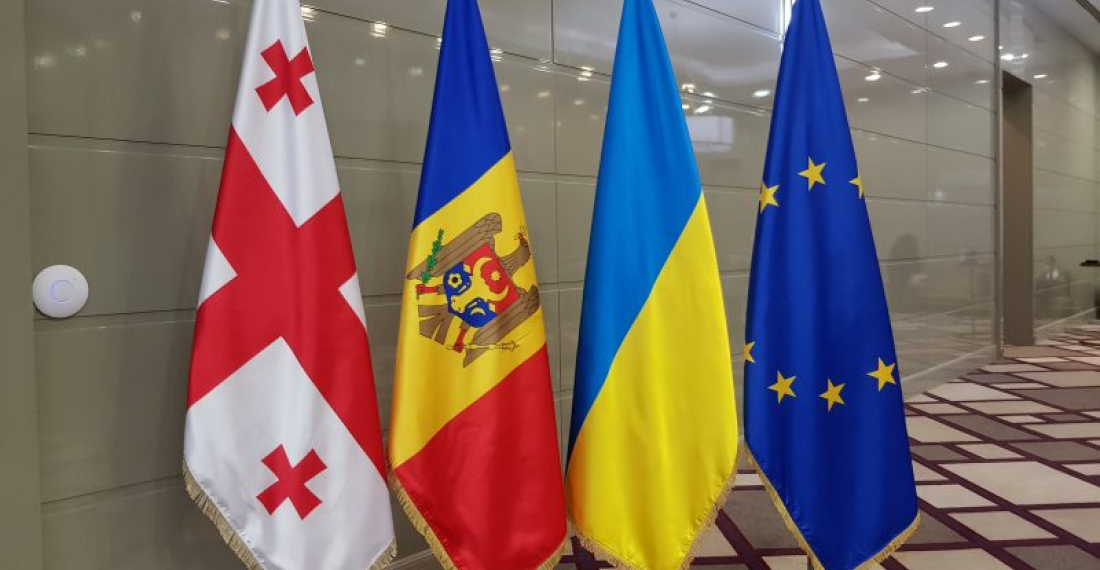This is a commentary prepared by the editorial team of commonspace.eu
What a difference six months can make. In mid-December European leaders meeting at the Eastern Partnership summit with their counterparts in Eastern Europe resisted attempts by the Associated trio: Georgia, Ukraine and Moldova, to secure from the EU an abstract "membership perspective", and had to make do with a fudgy language which satisfied no one.
But then events happened. Russia invaded Ukraine on 24 February, and the Ukrainians, contrary to the expectations of several European chanceries, resisted and contained the Russian advance. The war rages on in Eastern Ukraine, but the future of an independent and sovereign Ukraine is no longer in immediate danger. Outpour of respect and esteem for Ukraine across Europe was fulsome and genuine.
At the height of the battle the Ukrainians decided to up the ante, and submitted a request for immediate candidate status to the European Union. This they had originally intended to do later, as indeed was also the case with Georgia and Moldova, who. taken somewhat by surprise at the turn of events, submitted their applications too.
Candidate status is a half way house the EU extends to countries that it thinks can become EU members, and is used as a period to build up their capacity and harmonise their laws and business practices, as well as align political positions. It is not membership, as the Turks who were given candidate status in 2004 can very well tell you, but it is an important step forward and sends a positive signal. It also has some practical benefits in terms of assistance and support.
Yesterday, the European Council which gathers the 27 EU member states and the institutions, agreed to give Ukraine and Moldova candidate status with immediate effect. It gave Georgia "a membership perspective", with candidate status in the future if they can get their act together quickly. The Ukrainians were delighted. President Zelensky described it as a victory and promised not to rest until Russia’s defeat and full membership had been secured.
“We can defeat the enemy, rebuild Ukraine, join the EU, and then we can rest,” he said in a low voice in a video posted on social media.
In Moldova, the pro European government was ecstatic. Things had moved much faster than they had anticipated.
In Georgia the situation is different, and the country is somewhat grumpy. Georgians do not like to be last, and in a sense in this process at which they were until last year at the centre, they find themselves lagging behind the other two trio countries.
The government has tried to put on a brave face saying that being given a membership perspective was a victory for Georgia too. The opposition accuses the government of squandering a historic opportunity which will have long lasting impact. In many ways both are right. An EU membership perspective is important for Georgia, even if it is largely an abstract term. It consolidates the relationship. But it would have been much better for Georgia if they had been given candidate status with the others. The Georgians need to get their act together, and this means a lot of politicians from across the political spectrum will have to eat humble pie. The tone of the political debate needs to change radically, and important reforms that have been on the back burner need to be finished Will they do it? We think they will because for most Georgians the European vision is hugely important. The next six months will be crucial, but what is required now is wisdom and statesmanship not showmanship and brinkmanship. The world will be watching.





